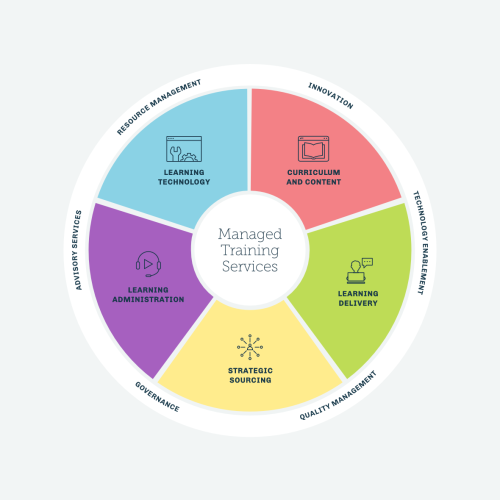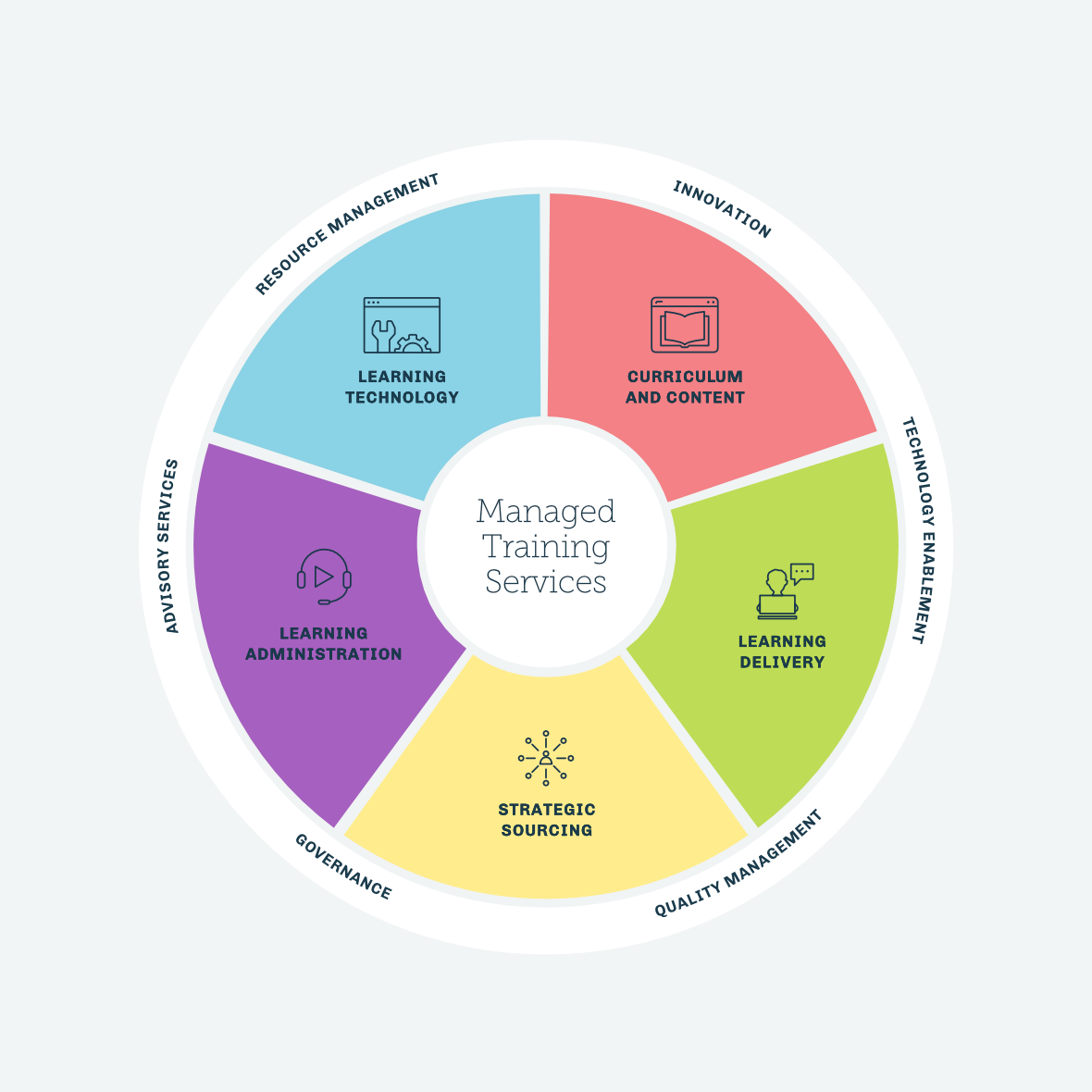
Do Managed IT Providers Offer Training?
Do Managed IT Providers Offer Training? You've probably heard the term "Managed IT Providers" before, but what exactly do they do? And more importantly, do they provide training? Well, my friend, you're in the right place to get all the answers! In this article, we'll dive into the world of Managed IT Providers and explore whether they offer training to their clients.
So, let's start by understanding what Managed IT Providers are all about. These tech-savvy superheroes specialize in providing comprehensive IT solutions to businesses. From managing networks and securing data to troubleshooting and maintaining systems, they handle it all. But when it comes to training, do they offer it to their clients? That's the question we're here to unravel.
When you partner with a Managed IT Provider, you're not just getting their technical expertise. These providers understand that technology is constantly evolving, and they want to keep their clients ahead of the curve. That's why many of them offer training programs tailored to their clients' needs. From basic software tutorials to advanced cybersecurity workshops, Managed IT Providers can equip businesses with the knowledge and skills to navigate the ever-changing digital landscape.
So, if you're looking to level up your IT game, partnering with a Managed IT Provider might just be the solution you've been searching for. Let's dive deeper into the world of training programs and find out exactly what you can expect from these tech-savvy superheroes. Buckle up, because we're about to embark on an exciting journey into the world of Managed IT training!

Do Managed IT Providers Offer Training?
In today's rapidly evolving technological landscape, businesses rely heavily on their IT systems for day-to-day operations. To ensure their systems run seamlessly, many businesses turn to managed IT providers. These providers offer a range of services to support and maintain their clients' IT infrastructure. One common question that arises is whether these managed IT providers also offer training opportunities. In this article, we will explore the role of managed IT providers in training, the benefits of such training programs, and how businesses can maximize the value of their partnership with their IT provider.
The Role of Managed IT Providers in Training
Managed IT providers can play a valuable role in training businesses on various aspects of their IT infrastructure. While their primary responsibility is to manage and maintain the IT systems, they understand that a well-trained workforce is essential for optimal system utilization. As such, many managed IT providers offer training programs to help businesses enhance their employees' proficiency in using the systems and tools provided.
These training programs can cover a wide range of topics, including cybersecurity best practices, software usage, network management, and more. The goal is to equip employees with the knowledge and skills necessary to leverage the IT infrastructure effectively. By investing in training, businesses can minimize downtime, improve productivity, and enhance overall efficiency.
Furthermore, managed IT providers can tailor these training programs to the specific needs of their clients. Whether it's on-site workshops, online courses, or virtual training sessions, businesses can choose the format that best suits their requirements. The flexibility and expertise offered by managed IT providers in training programs make them a valuable resource for businesses seeking to optimize their IT infrastructure.
The Benefits of Training Programs Offered by Managed IT Providers
Training programs offered by managed IT providers provide numerous benefits for businesses. Here are some key advantages:
- Improved Cybersecurity: Training programs can educate employees about the latest cybersecurity threats and preventive measures. This knowledge helps businesses safeguard their sensitive data and protect against potential cyber-attacks.
- Increased Productivity: When employees are well-versed in using IT systems and tools, they can work more efficiently. Training programs enable employees to leverage the full potential of the IT infrastructure, resulting in improved productivity.
- Reduced Downtime: By providing training on basic troubleshooting and system maintenance, managed IT providers can empower employees to address minor issues independently. This reduces the reliance on external IT support and minimizes system downtime.
- Enhanced Collaboration: Training programs often include modules on collaborative tools and communication platforms. This training enables employees to collaborate effectively, leading to improved teamwork and streamlined workflows.
- Adoption of New Technologies: Managed IT providers can assist businesses in staying up-to-date with the latest technologies and software updates. Their training programs can guide employees in adopting new tools and processes, keeping the business at the forefront of technological advancements.
These benefits highlight the value that training programs offered by managed IT providers bring to businesses. By investing in training, businesses can optimize their IT infrastructure and empower their employees to work more efficiently and effectively.
Tips for Maximizing the Value of Training Programs
To make the most of training programs offered by managed IT providers, businesses can follow these tips:
- Identify Training Needs: Assess the specific areas where employees require training and collaborate with the managed IT provider to develop customized programs that address those needs.
- Encourage Employee Participation: Emphasize the importance of training and encourage employees to actively engage and participate in the programs. This will ensure that employees gain the maximum benefit from the training sessions.
- Implement Continuous Learning: Training should be an ongoing process rather than a one-time event. Encourage employees to continue learning and upgrade their skills regularly to keep pace with technological advancements.
- Measure the Impact: Monitor the impact of training programs on employee performance, productivity, and overall IT infrastructure management. Collect feedback and make necessary adjustments to optimize the training experience.
- Leverage Additional Resources: Managed IT providers often offer supplementary resources such as user manuals, online tutorials, and knowledge bases. Encourage employees to utilize these resources to enhance their understanding of the IT infrastructure.
In Conclusion
Managed IT providers do offer training programs to help businesses optimize their IT infrastructure and enhance employee proficiency. These training programs bring numerous benefits, including improved cybersecurity, increased productivity, reduced downtime, enhanced collaboration, and adoption of new technologies. By following the tips mentioned above, businesses can maximize the value of training programs offered by their managed IT provider and ensure smooth operations of their IT systems.
Key Takeaways: Do Managed IT Providers Offer Training?
- Managed IT providers often offer training programs for their clients.
- These training programs aim to educate clients on how to use and optimize their IT systems.
- Training can cover a wide range of topics, including cybersecurity, software usage, and troubleshooting.
- Providers may offer both in-person and online training options to accommodate different client needs.
- Training sessions can be beneficial for improving overall IT knowledge and efficiency within organizations.
Frequently Asked Questions
In the world of IT, managed service providers are becoming increasingly popular for businesses looking to outsource their technology needs. One question that often arises is whether these providers offer training to their clients. In this section, we will address the common queries related to training offered by managed IT providers.
1. Can I expect training from a managed IT provider?
Absolutely! Many managed IT providers offer training as part of their service offerings. They understand that their clients may not have the technical expertise to fully utilize the technologies they implement. As such, they provide training sessions to help their clients understand and make the most of the IT solutions provided. Whether it's a new software system or a network infrastructure upgrade, your managed IT provider will ensure that you and your team are well-versed in using the new technology.
Training sessions can vary in format, ranging from group training sessions to one-on-one sessions tailored to meet the specific needs of your organization. Some providers may even offer online training resources or documentation for self-paced learning. The goal is to empower you and your employees with the knowledge and skills needed to effectively utilize the IT solutions provided.
2. What topics are typically covered in the training sessions?
The topics covered in training sessions offered by managed IT providers depend on the specific technologies and services they provide. For example, if your business has recently adopted a new customer relationship management (CRM) software, the training session may cover topics such as navigating the software interface, managing customer data, and generating reports.
In addition to software training, managed IT providers may also offer cybersecurity training to educate you and your team on best practices for data protection and preventing cyber threats. Other common areas of training include network management, hardware usage, and cloud computing.
3. Is the training personalized to meet my business needs?
Managed IT providers understand that every business is unique and has specific technology requirements. As a result, training sessions are often tailored to meet the specific needs of your organization. Before the training, the provider may conduct a thorough assessment of your current technology setup and identify areas where additional training is needed.
During the training sessions, the instructor will address your specific concerns and provide guidance based on your business's goals and requirements. This personalized approach ensures that you receive training that is relevant and applicable to your specific technology environment.
4. How long does the training process typically take?
The duration of the training process can vary depending on the complexity of the technology being implemented and the learning needs of your organization. In some cases, a single training session may be sufficient to provide the necessary knowledge and skills. However, for more complex technologies or larger organizations, multiple training sessions may be required.
It's important to note that training is an ongoing process. As technology evolves and your business grows, your managed IT provider may offer additional training sessions to ensure that you stay up-to-date with the latest advancements and continue to make the most of your IT solutions.
5. Are there any additional costs associated with the training?
The cost of training is typically included as part of the comprehensive package offered by managed IT providers. However, it's always a good idea to clarify this with your provider beforehand. This way, you can ensure that there are no unexpected expenses and that you're getting the full range of services, including training, for the agreed-upon price.
Additionally, some providers may offer advanced or specialized training sessions for an additional fee. These sessions may go into greater depth or cover more advanced topics beyond the basic training offered. If you feel the need for specialized training, discuss it with your provider, and they can provide you with more information on any associated costs.
Summary
Managed IT providers can help with training but it may not be their primary focus. They can assist with onboarding new technology, troubleshooting issues, and provide some training resources. However, expertise and training can vary among providers, so it's important to communicate your specific training needs and ensure they can meet them.
Recent Posts
- How Does GPON Improve Network Efficiency?
- What Are The Advantages Of GPON?
- What Are The Benefits Of IT Outsourcing?
- What's The Deal With Ransomware Attacks?
- Are GPON Providers Widely Available?
- What's GPON's Impact On Bandwidth?
- Why Is Multi-Factor Authentication Important?
- How To Ensure Data Privacy Compliance?
 Blogs
Blogs Infographics
Infographics Videos
Videos Podcasts
Podcasts Case Studies
Case Studies Call For Quote
Call For Quote